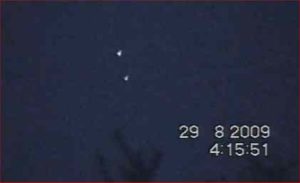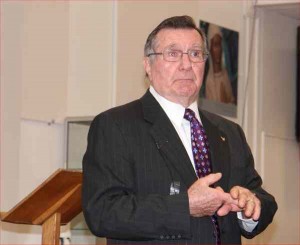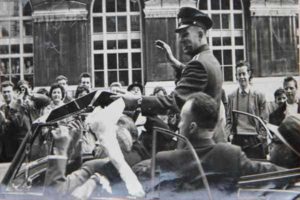Another Yuri Gagarin episode, I know the anniversary of the world’s first spaceflight is over but there is still lots going on over the next few months. There are two contributors in this episode, Chris Riley and Richard Evans.
One of the most successful projects to mark the anniversary is the film First Orbit. The only camera aboard Vostok 1 was on the inside, transmitting live pictures of Gagarin’s face to the nervous engineers who anxiously monitored mankind’s first experience of spaceflight. First Orbit is a remarkably accurate recreation of what Gagarin would have seen compiled from high definition video shot from the space station. Astonishingly, this undertaking of international proportions, was put together by numerous unpaid volunteers and almost three million who have seen it, saw it for free. It is still available for viewing online and for download – still free. If you want to make a contribution and have a smart phone (Android or Iphone) the First Orbit app will set you back about 70 pence.
First Orbit was produced and directed by Chris Riley along with many other volunteers. Chances are you have already seen the film. Also available from firstorbit.org website is a short but facinating video about the making of First Orbit. Chris Riley talks about his next project “Orbit” but begins with how the idea of First Orbit came about.
Yuri Gagarin was in Britain for 5 days; he spent the second one, Wednesday 12th July 1961, in Manchester. A major in the Soviet Air Force, he started off his career as a foundryman. During his six hours in the city, he visited the headquarters of the Amalgamated Union of Foundry Workers in Old Trafford, the Metropolitan Vickers Engineering plant in Trafford Park and concluded with a civic reception in Manchester Town Hall.
The only event in Manchester to mark the anniversary of Yuri Gagarin’s visit is an exhibition at the Waterside Arts Centre in Sale running through until 17th August 2011. The exhibition and program of events have been driven by the science fiction author Richard Evans. He talks about the exhibition but starts with his current writing project.
________________________
Today’s quote is from Yuri Gagarin asserting his working class roots during his Manchester visit.
“Although I am doing a different job now, I am still a foundry worker at heart”
Podcast: Play in new window | Download (Duration: 18:08 — 12.5MB) | Embed
Subscribe: Apple Podcasts | Spotify | RSS | More


